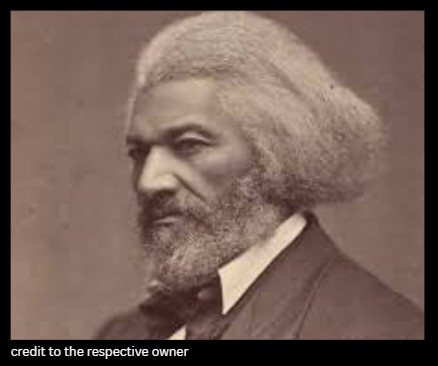Like most enslaved people, Frederick Douglass didn’t know his exact birthday. He only knew he was born around 1817 in Talbot County, Maryland. He also didn’t know who his father was, though rumors suggested it might have been the plantation master. His mother didn’t live with him—she was moved during his infancy to a plantation about twelve miles away. His memories of her were few: a handful of times she walked at night to be with him for a few hours before returning, as she had to work in the morning. Those visits ended when she died around the time Frederick was seven. This was the start of the young boy’s life—on a plantation, father unknown, mother far away at first, then gone.
More trauma shaped his childhood. As a child, he witnessed his aunt being whipped by an overseer. He wrote about that and many similar experiences: “I remember the first time I ever witnessed this horrible exhibition. I was quite a child, but I well remember it. I never shall forget it whilst I remember anything. It was the first of a long series of such outrages, of which I was doomed to be a witness and a participant. It struck me with awful force. It was the blood-stained gate, the entrance to the hell of slavery, through which I was about to pass. It was a most terrible spectacle. I wish I could commit to paper the feelings with which I beheld it.”
Around age eight, Frederick’s life took a turn. He was chosen to live with a relative of the plantation master in Baltimore, where he caught a glimpse of a different life. In his new home, he described the mistress as “a woman of the kindest heart and finest feelings.” She began teaching him the alphabet and how to read. But her husband, once he found out, stopped the lessons. Despite that, a new world had already opened for Frederick. He was inspired to learn and understood how important education was.
From his time in Baltimore came two big changes. First, his commitment to learning to read and write, which he pursued by trading food with some neighboring poor white children for lessons. Second, new thoughts of life as a free man. “I was now about twelve years old, and the thought of being a slave for life began to bear heavily upon my heart,” he wrote. Though he couldn’t act on this yet, the desire grew stronger.
This chapter ended when Frederick was sent back to a rural plantation. While enslaved life was always cruel, it was often harsher in the countryside than in cities. Frederick faced even more brutality, including frequent whippings. “The dark night of slavery closed upon me,” he wrote.
For a while, he lived with a broken spirit, anxious about the harshness of his new life. But after standing up to cruel punishment, his determination for freedom returned.
—
September 3rd, 1838—freedom. That day, Frederick Douglass successfully escaped from Baltimore to New York. Reflecting on his feelings then, he wrote:
“I have been frequently asked how I felt when I found myself in a free State. I have never been able to answer the question with any satisfaction to myself. It was a moment of the highest excitement I ever experienced. I suppose I felt as one may imagine the unarmed mariner to feel when rescued by a friendly man-of-war from the pursuit of a pirate. Writing to a dear friend soon after arriving in New York, I said I felt like one who had escaped a den of hungry lions. This state of mind, however, soon faded; I was again seized with great insecurity and loneliness. I was still at risk of being captured and returned to slavery. That alone dampened my enthusiasm. But loneliness overwhelmed me. There I was among thousands, yet a perfect stranger; without home or friends, and among thousands of my own brethren—children of a common Father—but I dared not reveal my sad condition to any of them. I was afraid to speak, fearing the wrong person might be a kidnapper, lying in wait like a ferocious beast for a fleeing fugitive.”
Though these feelings weighed on him at first, Frederick also felt much joy and gladness. The kindness of others helped him settle into his new life. One man, in particular, showed him great generosity and guidance. With his help, Frederick married and moved to New Bedford, Massachusetts, where they settled.
Starting a job and adjusting to his new life, Frederick came across an abolitionist newspaper, the Liberator. He became an eager reader, and over time this led him to his life’s calling. After all the pain he suffered as an enslaved person, he was determined to help bring change. He wanted to end slavery and fight for equality for all, dedicating himself to public speaking, writing, and meeting with leaders.
Frederick Douglass passed away in Washington, D.C., on February 20, 1895.
